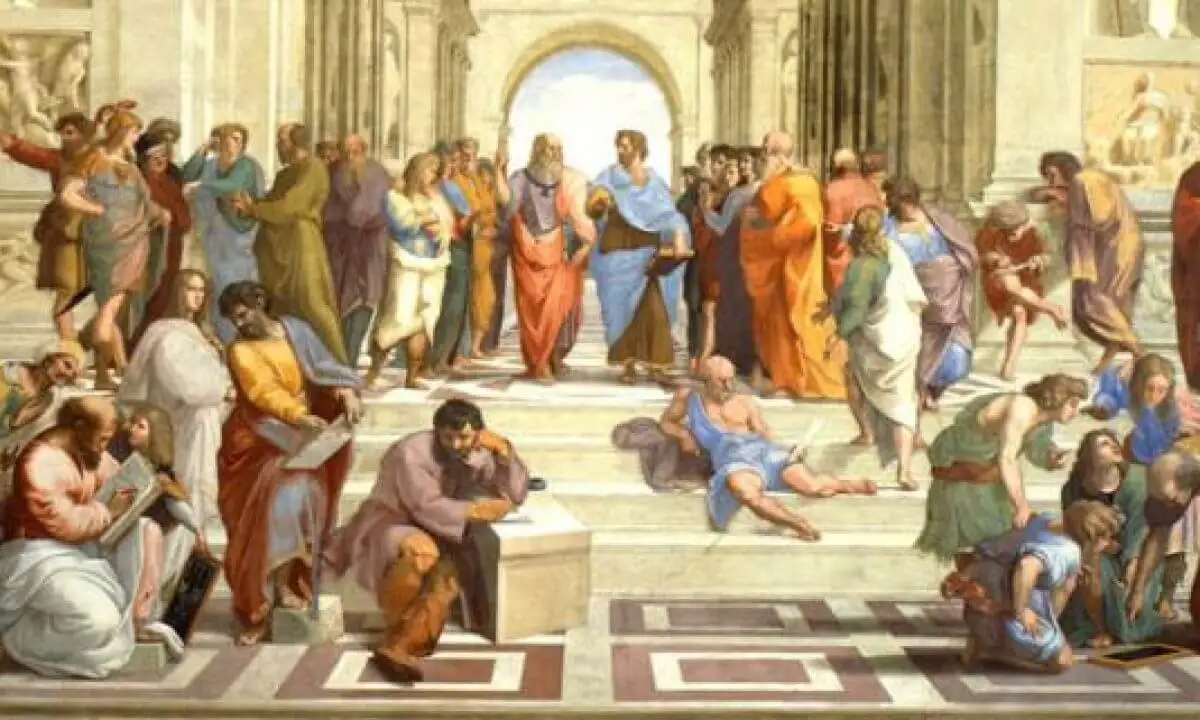Who Were the Sophists and What Contributions Did They Leave Us?


Written and verified by the philosopher Maria Alejandra Morgado Cusati
In ancient Greece, specifically in the democratic Athens of the fifth and fourth centuries B.C., there was a group of thinkers dedicated to teaching the art of rhetoric and persuasion. These scholars, called the Sophists, pursued a practical goal: to instruct citizens in the conduct of public affairs in exchange for money.
The sophists did not form a united school. However, what they had in common was their moral relativism, denial of objective truth, and skepticism about the absolute value of knowledge. Let’s take a closer look.
Who were the Sophists?
The word “sophist” comes from the Greek word sophos, meaning “wise man”. Therefore, in ancient Greece, it was used to name anyone who taught wisdom.
However, from the 5th century B.C. onwards, the word began to acquire a pejorative and degrading tinge. Various philosophers of the time (pre-Socratics) accused them of not seeking objective truth.
The truth is that the Sophists were travelers who knew different cultures, which were very different from the Greeks. Therefore, they came to question whether laws and customs were the result of social convention or, on the contrary, were natural.
Thus, they advocated a relativistic interpretation of reality, in which objective truth did not exist, but was constructed on the basis of the opinion of the majority. Therefore, instead of seeking “true knowledge” (as did most of the philosophers of the time), they focused on teaching oratory. By doing so, their students could succeed in society and politics.
Sophists went from being “masters of wisdom” or “knowers of life” to “master charlatans,” “tricksters” or “false sages.” Philosophers such as Plato and Aristotle even accused them of being cheats for using rhetoric and dialectics to deceive people.
We should keep in mind that, in this historical period, the system of government in Athens was a parliamentary democracy. Laws and public offices were passed in debates among citizens. Therefore, mastering rhetoric and persuasion was essential to have influence in public affairs.
Thus, the sophists’ outstanding skills in oratory were useful for the time, which allowed them to teach others this skill and thus become the first professional thinkers who were paid for transmitting their knowledge.

We think you may be interested in reading this, too: The Philosophy of Nature and its Importance for the Modern World
The main beliefs of the Sophists
The Sophists did not represent a current with a unique thought. However, they all shared a relativistic and skeptical position on truth. Among the most prominent were the following.
Protagoras of Abdera (485 – 411 B.C.)
The best-known phrase of this philosopher was the following:
Man is the measure of all things, of those that are insofar as they are and of those that are not insofar as they are not. -Protagoras
Such an expression refers to the fact that the law is a social convention and that it can be changed according to the interest of each community. Therefore, the only judges to believe in are men by the majority.
Protagoras is remembered as a traveling thinker, and expert in rhetoric, who charged high fees for his knowledge about the correct use of words (orthoepia).
Gorgias of Leontinos (483 – 375 B.C.)
He was a great advocate of skepticism. His best-known works are On Nature or Non-Being and the Encomium of Helen.
The first is a treatise on Eleatic philosophy, in which he argues that nothing exists, if something existed it could not be known and if it could be known, it could not be communicated. For its part, the Encomium of Helen is a discourse in which he analyzes all the reasons why Helen is blamed for the Trojan War. He then dismisses all of them as false.
Antiphon (480 – 411 BC)
He was an advocate of the hedonist theory, which states that human actions are motivated by the pursuit of pleasure. He also wrote rhetoric and political speeches.
He believed the law to be an artificial human convention that is often contrary to nature itself. Laws are changeable, like the human will; that is why justice is subject to fluctuations. Thus, he defended that the transgression of human law in secret did not entail punishment.
The contributions of the Sophists
Although the term is usually assumed as something pejorative within the philosophical community, it’s important to recognize the contributions that these great thinkers left us. The most relevant are the following.
Relativism and skepticism
The sophists were the first to propose a relativistic and skeptical perspective of reality. For them, there are no universal truths or laws that explain the origin of things or that dictate what is right and what is wrong.
If there are, man does not have the faculties to know them. Thus, there will be different views of reality, all of them being equally valid.
The focus on the individual and society
Philosophers prior to the Sophists had focused on the study of nature, the creation, and the origin of the cosmos. On the other hand, these new thinkers broke with that tradition and focused on the study of man and society, considering the different factors linked to these, such as politics or education.

The importance of discourse and language
Likewise, the Sophists were the first thinkers to reflect on discourse and its importance in persuading others. In this sense, they are the precursors of rhetoric as a discipline.
For their part, the Sophists made great contributions to philology and linguistics, such as the categorization of verbs and nouns, the grammatical analysis of words, the interpretation of meanings, the correct practice of syntax, the distinctions between words, and the types of sentences.
Like this article? You may also like to read: Koshas or Sheaths of Being: What They Mean in Yoga and Philosophy
The pedagogy
Finally, the Sophists were the first thinkers to charge money for their teachings. Moreover, they’re considered the forerunners of education in an artificial environment (characteristic of Western civilization). This replaced the traditional Greek education, given within the social environment of adults.
Vindication of the Sophists
Although the philosophical tradition has been responsible for discrediting the Sophists, some contemporary philosophers have tried to vindicate the importance of these great thinkers. For example, authors such as Friedrich Nietzsche and George Grote defended that the Sophists were authentic philosophers, whose doctrines should be analyzed as serious positions of knowledge.
All cited sources were thoroughly reviewed by our team to ensure their quality, reliability, currency, and validity. The bibliography of this article was considered reliable and of academic or scientific accuracy.
- Cadavid L. Los sofistas: maestros del areté en la paideia griega. Revista Perseitas. 2014;2(1):37-61.
- Taylor C, Lee M. The Sophists [Internet]. California: Stanford Encyclopedia of Philosophy; 2020 [consultado el 12 oct de 2022]. Disponible en: https://plato.stanford.edu/entries/sophists/
This text is provided for informational purposes only and does not replace consultation with a professional. If in doubt, consult your specialist.








